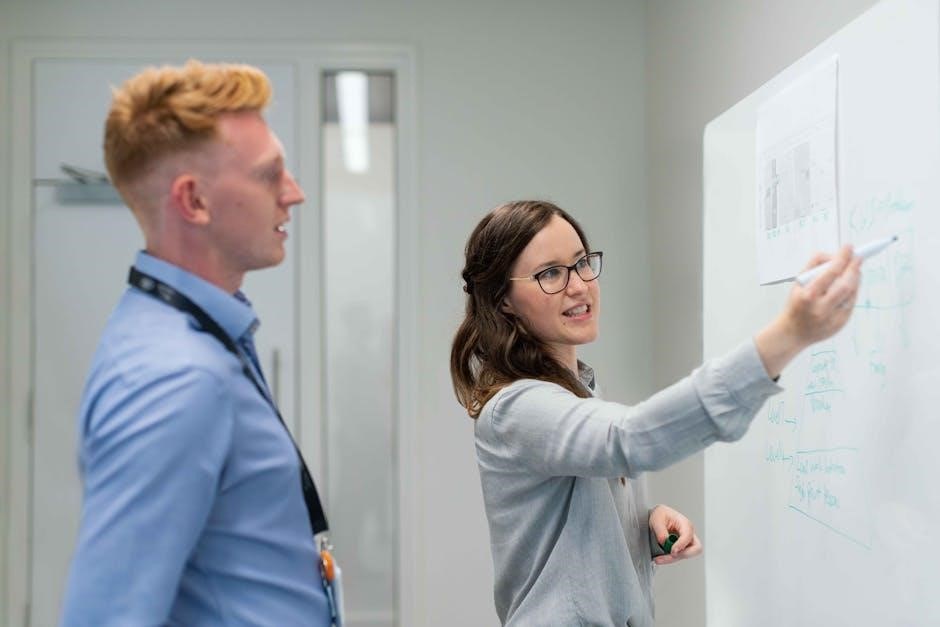Learning Arabic in India offers a rich cultural and educational experience‚ with numerous resources and guides available‚ including comprehensive PDFs and structured courses.

Why Learn Arabic?
Arabic is a globally significant language‚ essential for understanding Islamic texts‚ fostering cultural connections‚ and unlocking career opportunities in diplomacy‚ academia‚ and international relations.
Importance of Arabic in India
Arabic holds significant cultural‚ historical‚ and religious importance in India‚ particularly for Muslim communities. It is the language of the Quran and Islamic scholarship‚ fostering spiritual and academic connections. Many Indian universities offer Arabic courses‚ recognizing its value in diplomacy‚ international relations‚ and cultural exchange. Arabic’s influence is also evident in Indian languages like Urdu and Hindi‚ which have borrowed extensively from Arabic vocabulary. Additionally‚ knowledge of Arabic opens career opportunities in fields such as translation‚ interpretation‚ and Middle Eastern studies. The growing demand for Arabic speakers in India highlights its relevance in a globalized world. Thus‚ learning Arabic in India bridges cultural gaps and enhances personal and professional growth.
Benefits of Learning Arabic
Learning Arabic in India offers numerous benefits‚ including enhanced cultural understanding and religious connections‚ particularly for Muslim communities. It fosters deeper engagement with Islamic texts‚ such as the Quran‚ and opens doors to scholarships and academic opportunities. Arabic proficiency boosts career prospects in diplomacy‚ international relations‚ and Middle Eastern studies. Additionally‚ it enhances cognitive abilities‚ such as memory and problem-solving skills‚ through the acquisition of a new script and grammar system. Arabic learners also gain access to a rich literary and cultural heritage‚ bridging cultural gaps between India and Arab nations. This skill further enriches personal growth and broadens global communication abilities‚ making it a valuable asset in today’s interconnected world.

How to Study Arabic in India
Studying Arabic in India is accessible through online platforms‚ universities‚ and institutions offering structured courses. Utilize PDF guides‚ language apps‚ and cultural immersion for effective learning experiences tailored to all levels.
Online Resources for Learning Arabic
Online resources for learning Arabic in India are abundant and diverse. PDF guides like The Beginners Guide to Arabic offer comprehensive lessons on the alphabet‚ grammar‚ and vocabulary. Popular platforms such as Duolingo and Memrise provide interactive and gamified learning experiences‚ making the process engaging. YouTube channels dedicated to Arabic instruction offer video tutorials‚ while websites like Arabicpod101 and Talk in Arabic cater to different proficiency levels. Many resources focus on Modern Standard Arabic‚ while others emphasize regional dialects. These online tools are accessible‚ flexible‚ and often free‚ making them ideal for self-paced learning. They also include multimedia elements like audio and video to enhance pronunciation and comprehension skills.
Offline Resources and Institutions
India offers a variety of offline resources and institutions for learning Arabic. Prestigious universities like Jamia Millia Islamia and Aligarh Muslim University provide structured Arabic courses with experienced instructors. Independent language centers specialize in tailored instruction‚ often with smaller class sizes for personalized attention. Libraries across India hold extensive collections of Arabic textbooks‚ dictionaries‚ and learning materials‚ enabling self-study and reinforcement of classroom learning. Community centers and cultural organizations frequently host Arabic workshops and classes‚ fostering interaction with native speakers and promoting cultural immersion. These offline resources complement online learning‚ offering a well-rounded and immersive Arabic education experience tailored to diverse learning needs and goals.
Resources for Learning Arabic
India offers diverse Arabic learning resources‚ including textbooks‚ PDF guides‚ and educational apps. Structured courses from universities and independent centers provide comprehensive language acquisition tools tailored to all learners.
Recommended Online Platforms
Several online platforms simplify Arabic learning in India. Duolingo and Memrise offer gamified‚ interactive lessons ideal for beginners‚ focusing on vocabulary and basic grammar. Arabicpod101 provides audio and video lessons tailored to various proficiency levels‚ enhancing listening and speaking skills. YouTube channels like ArabicPod101 and Learn Arabic with Maha offer free‚ engaging video tutorials. Apps like Babbel and Rosetta Stone provide structured courses with interactive exercises. Additionally‚ platforms like Udemy and Coursera host affordable Arabic courses taught by experts. These resources cater to different learning styles‚ ensuring flexibility and accessibility for learners in India. They complement traditional methods‚ offering a modern‚ convenient way to master Arabic.
Top Books for Arabic Learners
Free PDF Guides and Materials
Free PDF guides are invaluable for learning Arabic in India‚ offering accessible and cost-effective resources. “Beginners_Guide_To_Arabic” provides a comprehensive introduction‚ covering the alphabet‚ vowels‚ and basic vocabulary. Another popular resource is “Learning Arabic Language Of The Quran‚” which focuses on understanding the Quran’s language. Websites like truenorthdigital.com offer detailed PDF guides‚ including lessons on grammar‚ dialects‚ and cultural insights. These materials cater to both beginners and intermediate learners‚ ensuring a structured approach to mastering Arabic. Free PDFs are easily downloadable‚ making them ideal for self-paced learning. They often include exercises and practical examples‚ making them a great supplement to formal courses or online lessons.

Arabic Vocabulary and Grammar
Mastering Arabic vocabulary and grammar is essential for fluency. Resources like PDF guides and textbooks provide structured lessons on verb conjugations‚ noun declensions‚ and sentence formation‚ aiding learners in India.
Mastering the Arabic Alphabet
Mastering the Arabic alphabet is the first step in learning Arabic‚ with 28 letters and unique script. Resources like PDF guides and textbooks in India provide detailed lessons on pronunciation‚ writing‚ and basic vocabulary. These materials often include exercises and practice sheets to help learners familiarize themselves with the script. Many guides emphasize the importance of understanding vowel marks and letter connections. Language apps and online tools also offer interactive lessons for practicing the alphabet. Consistent practice is crucial‚ as the Arabic script is written from right to left‚ differing from English. Mastery of the alphabet forms the foundation for further language learning‚ enabling learners to read and write effectively.
Understanding Arabic Grammar Rules
Understanding Arabic grammar rules is essential for effective language acquisition. Arabic grammar‚ known for its complexity‚ includes verb conjugations‚ noun declensions‚ and sentence structure. Resources like PDF guides and textbooks in India provide detailed explanations of these rules‚ often with exercises to practice. The system of Arabic grammar is based on root words and patterns‚ which govern word formation. Mastery of these rules enables learners to construct correct sentences and comprehend various dialects. Consistent practice with exercises in these guides is crucial for proficiency. The structured approach of Indian educational resources helps learners gradually grasp the nuances of Arabic grammar‚ making it easier to read and write effectively‚ especially for those aiming to understand Islamic texts or communicate in Arabic-speaking regions.
Cultural Immersion and Practice
Cultural immersion enhances Arabic learning through interaction with native speakers‚ multimedia resources‚ and community events. Engaging in cultural activities and using interactive platforms further enriches the learning experience.
Engaging with Arabic-Speaking Communities
Engaging with Arabic-speaking communities in India enriches language learning by providing real-life interaction and cultural insight. Joining community events‚ cultural festivals‚ and language meetups offers opportunities to practice conversational skills. Online forums and language exchange platforms also connect learners with native speakers globally. Participating in these interactions helps learners understand dialect variations‚ pronunciation‚ and colloquial expressions. Additionally‚ community centers and cultural organizations often host Arabic classes or workshops‚ fostering immersion and practical application of language skills. Such engagement not only enhances fluency but also deepens understanding of Arab culture‚ making the learning process more meaningful and enjoyable. Regular interaction builds confidence and improves overall communication abilities.
Utilizing Multimedia Resources
Multimedia resources play a vital role in enhancing Arabic learning in India. Videos‚ podcasts‚ and interactive apps provide engaging ways to practice listening and speaking skills. YouTube channels offer tutorials by native speakers‚ while language learning apps like Duolingo and Memrise incorporate gamified lessons. Audio resources‚ such as pronunciation guides and dialect-specific recordings‚ aid in mastering accents and intonation. Additionally‚ downloadable PDFs and e-books provide structured lessons for self-paced study. These tools cater to diverse learning styles‚ making Arabic accessible and enjoyable; Combining multimedia resources with traditional methods creates a balanced and effective learning strategy‚ fostering both comprehension and practical application of the language. Regular use of these resources ensures steady progress and improved fluency.
Career Prospects and Opportunities
Mastering Arabic opens doors to diverse career opportunities in India and globally. Proficiency in Arabic is highly valued in fields like diplomacy‚ international business‚ and academia. Professionals with Arabic skills are sought after in roles such as translators‚ interpreters‚ and cultural consultants. The growing demand for Arabic experts in industries like tourism‚ media‚ and education further expands career avenues. Additionally‚ opportunities in Islamic studies‚ research‚ and Quranic scholarship are abundant. Fluency in Arabic also enhances prospects in government sectors‚ including foreign services and intelligence agencies. With globalization‚ the ability to communicate in Arabic becomes a competitive advantage‚ offering lucrative career paths for learners in India and beyond.

Institutes and Courses in India
India offers various Arabic courses through universities‚ language centers‚ and specialized programs‚ catering to all skill levels from basic to advanced‚ with expert instructors and comprehensive curricula.
Top Universities Offering Arabic Courses
India’s prestigious universities like Jamia Millia Islamia‚ Aligarh Muslim University‚ and Jawaharlal Nehru University offer renowned Arabic courses. These programs cater to all levels‚ from undergraduate to doctoral studies‚ emphasizing language proficiency‚ literature‚ and cultural insights. Located in Delhi‚ Aligarh‚ and New Delhi respectively‚ these institutions provide expert faculty and comprehensive curricula. Students gain a deep understanding of Arabic language‚ theology‚ and regional dialects‚ preparing them for academic and professional opportunities. These universities are hubs for linguistic and cultural immersion‚ attracting learners nationwide and fostering global understanding of Arabic heritage.
Independent Language Centers
Independent language centers in India provide flexible and specialized Arabic courses tailored to diverse learning needs. These centers often offer part-time or full-time programs‚ focusing on conversational skills‚ reading‚ and writing. Many cater to professionals‚ students‚ and enthusiasts seeking to learn Arabic without formal university enrollment. Centers like the Arabic Academy in Mumbai and Language Hive in Bangalore are known for their experienced instructors and immersive teaching methods. They emphasize cultural context‚ making learning engaging and practical. These institutions provide a supportive environment for learners to master Arabic efficiently‚ often with smaller class sizes and personalized attention. Additionally‚ they organize cultural events and workshops to enhance learning experiences.
Tips for Effective Learning
To master Arabic effectively in India‚ establish a consistent study routine and set realistic goals. Immerse yourself in the language by engaging with Arabic media‚ such as films‚ music‚ and news. Practice speaking with native speakers or language partners to improve pronunciation and fluency. Utilize flashcards and spaced repetition systems (SRS) for vocabulary building. Regularly review grammar rules and apply them in writing exercises. Stay motivated by celebrating small achievements and seeking feedback from instructors or peers. Combine traditional textbooks with modern apps like Duolingo and Memrise for a well-rounded approach. Lastly‚ embrace cultural immersion by attending Arabic workshops or joining language clubs to enhance your learning journey.
Learning Arabic in India is a rewarding journey‚ supported by diverse resources and a growing interest in the language. With accessible guides‚ online platforms‚ and cultural opportunities‚ learners can effectively navigate their path to fluency. Consistent practice‚ immersive experiences‚ and dedication are key to mastering Arabic. The availability of comprehensive PDF guides and structured courses ensures that learners in India have ample tools to succeed. Embrace this enriching experience‚ as it not only enhances linguistic skills but also bridges cultural and intellectual connections. Whether for academic‚ professional‚ or personal growth‚ learning Arabic opens doors to new opportunities and deeper understanding of a rich heritage.
